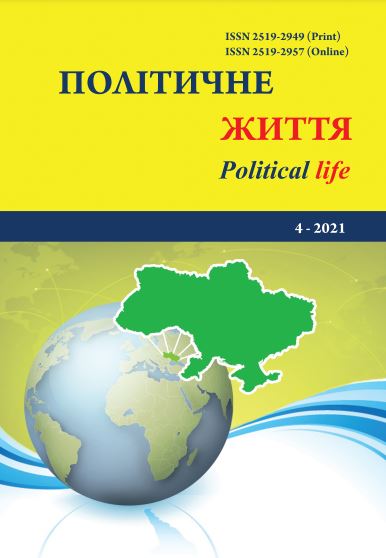Abusing a neo-militant democracy or becoming a quasi-militant democracy: the case study of Denmark in times of crisis
DOI:
https://doi.org/10.31558/2519-2949.2021.4.6Keywords:
Denmark; pandemic; restrictions; neo-militant democracy; civil rightsAbstract
In the Member States of the European Union, there is a noticeable process of regular limitation of civil rights and freedoms, which, according to researchers, takes place since the 2008 serious financial crisis. The introduced restrictions may indicate the process of neo-militant democracy, which was first mentioned by Karl Loewenstein in his works. Subsequent crises, inter alia the so-called the refugee crisis and the coronavirus pandemic have accelerated the process. As a result, states began to look for ways to justify the introduced restrictions, including using solutions provided for in national legal solutions. In most cases, "the state of emergency" or "the state of natural disaster" began to be used, which allow for a significant restriction of citizens’ freedom for the purposes of their safety and public order. In Denmark, however, such a form of prevention has never been such a form of prevention, and for this reason, work has begun on changes in the law, allowing the ruling to use solutions that have existed for years in the national orders of other Member States. The aim of the article is to resolve the following research question: Where is Denmark on a continuum determined by the two processes: abusing a neo-militant democracy and becoming a quasi-militant democracy to justify the introduced restrictions before adopting a new legal solution. The analysis draws upon the method of qualitative source analysis. The main source of regulation which has been analyzed is the Danish constitution, and amended the Danish Epidemic Act.
This research contributes to the understanding of new militant democracies that limit the rights and freedoms of citizens through legal regulations. The study also makes it possible to update and significantly expand the previously used concept of militant democracy, which initially referred to the Weimar Republic.
The main argument is that the use of "the state of emergency" or "the state of natural disaster" in Denmark may allow for a significant limitation of the rights and freedoms of citizens, which on the one hand is aimed at counteracting the serious threat of the coronavirus pandemic, and on the other hand is a solution favoring democratic backsliding. It is also an increase in the powers of governments and a legal tool for introducing undemocratic solutions.
References
Loewenstein, K. Militant Democracy and Fundamental Rights I. The American Political Science Review, 1937, No. 3(31), p. 417–432.
Molier G., & Rijpkema B. R. Germany’s New Militant Democracy Regime: National Democratic Party II and the German Federal Constitutional Courts’s ‘Potentiality’ Criterion for Party Bans: Bundesverfassungsgericht, Hudgment of 17 January 2017, 2 BvB 1/13, National Democratic Party IIl, European Constitutional Law Review, 2018, No. 2(14), p. 394-409.
Bäcker R., Rak. J, Trajektora trwania opancerzonych demokracji, Studia nad autorytaryzmem i totalitaryzmem, No. 3(41), p. 63-82.
Skrzypek M., The Banning of Extremist Political Parties as a Measures of Neo-Militant Democracy: The Experience of Post-Communist States, HAPSc Policy Briefs Series1(2), p. 67-73, https://doi.org/10.12681/hapscpbs.26450.
Osiewicz, Przemysław. 2020. “Limitations to the Right to Freedom of Assembly in Poland during the COVID-19 Pandemic: The Case of Women’s Strike.” HAPSc Policy Briefs Series1(2): 195–200. https://doi.org/10.12681/hapscpbs.26458
Rak J., Conceptualising the Theoretical Category of Neo-militant Democracy: The Case of Hungary, Polish Political Science Yearbook, 2020, 49 (2), p. 61–70. https://doi.org/10.15804/ppsy2020204
Rak J., Quasi-Militant Democracy as a New Form of Sacred in Poland during the Corona Crisis, Journal for the Study of Religions and Ideologies, 2020, 19 (57), p. 111–128.
Danmarks Riges Grundlov (5 juni 1953), [in:] „Lovtidende for Kongeriget Denmark” A 1953, No XVII, No 169.
COVID-19: The Danish Epidemic Act. URL: https://gorrissenfederspiel.com/en/knowledge/news/ covid-19-the-danish-epidemic-act (23.12.2021).
Lov om epidemier m.v. (epidemiloven), https://www.retsinformation.dk/eli/lta/2021/285. URL: (23.12.20121).
How Denmark’s Epidemic Act Was Amended to Respond to COVID-19, https://blog.petrieflom.law.harvard.edu/2020/05/26/denmark-global-responses-covid19/, URL: (23.12.2021).

